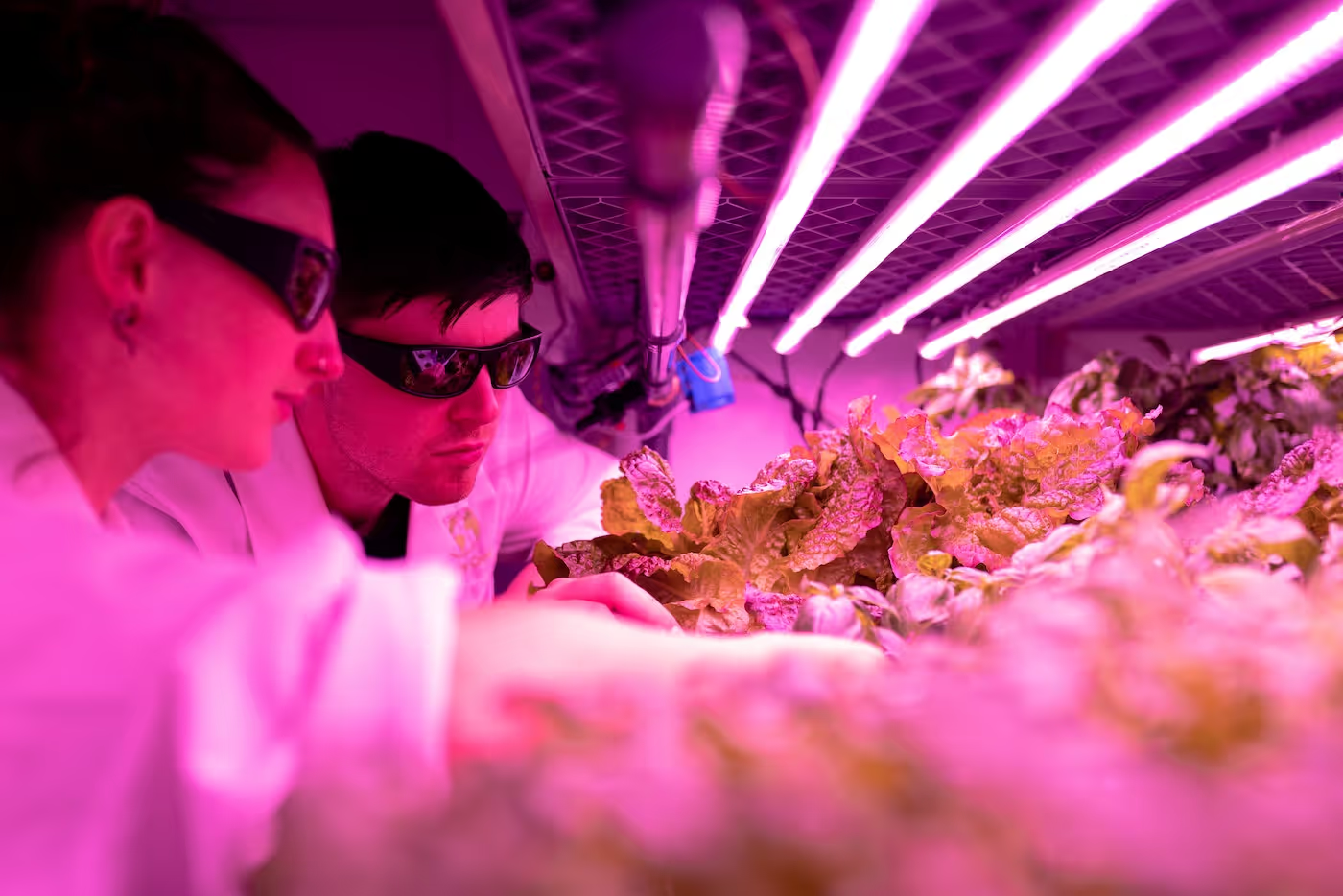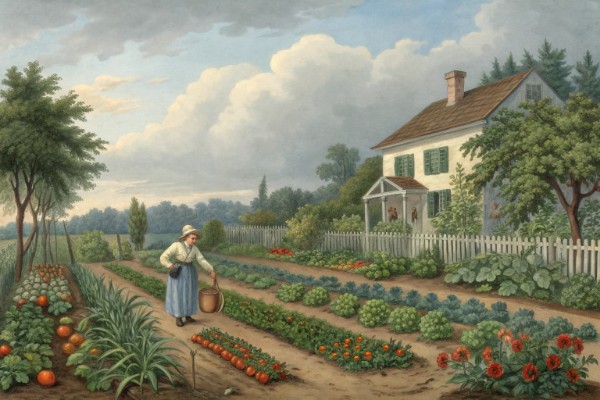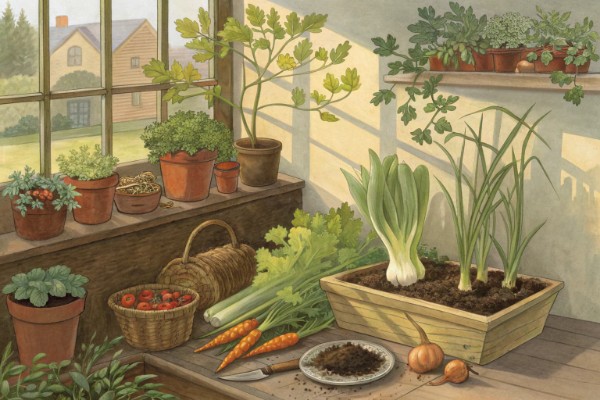Gardening Innovations: Fresh Ideas for Vegetable Gardens

Gardening Innovations
Level-up your garden this season with the freshest gardening innovations. Discover smart watering gadgets that reduce water use by up to 50%, vertical growing systems to triple your yield in small spaces, and organic, disease-resistant plant varieties that increase harvests without chemicals. Curious to uncover what other gardening innovations can transform your vegetable plot this year? Let's get digging.
Vertical Gardens: Grow Up, Not Out
I remember my first vertical garden. My backyard was small, about the size of a shoebox apartment, yet bursting with potential.
One afternoon, coffee in hand and skepticism in heart, I decided to test this upward gardening trend. Tomatoes, cucumbers, and even zucchinis—plants I'd always seen sprawling across garden beds—grew vertically on trellises, cages, and wall planters.
The result? Astonishing productivity in a previously unused vertical space. Vertical gardening saves square footage, reduces pest invasions, and simplifies harvesting.
Perfect for urban gardeners or those short on space, vertical gardens make gardening dreams achievable in the smallest of apartments or balconies.
Smart Irrigation Systems: Water Wisely and Effortlessly
I once soaked a row of spinach right into oblivion. Overwatering, despite good intentions, can doom even seasoned gardeners.
Enter smart irrigation systems, a gardening innovation that applies water with surgical precision. These systems monitor soil moisture, track weather forecasts, and water smarter and less frequently.
"Smart irrigation methods can reduce water use by up to 50% without sacrificing plant health." — EPA WaterSense Program
Installing a drip irrigation system last summer freed me from constant watering anxiety. The technology adapts to current conditions, conserves resources, and grants more time for enjoying the garden itself.
Companion Planting Apps: Nature’s Partners, Digitized
I grew up planting carrots next to onions, a technique my grandfather swore drove pests away. Now, technology takes that garden wisdom and translates it to handy apps.
These digital companions suggest ideal planting partners to maximize yield and minimize pest damage. Simply input your preferred vegetables, and the app reveals beneficial pairings based on tried-and-true gardening practices.
- Tomatoes and basil: Basil repels hornworms and improves tomato flavor.
- Cabbages and herbs: Thyme or sage deters destructive cabbage moths.
- Corn and beans: Beans replenish soil nitrogen that corn hungrily consumes.
Using these apps has transformed my gardening from trial-and-error into informed planting, significantly improving yields and quality.
Soilless Solutions: Hydroponics at Home
If you've ever spent hours hauling bags of soil, hydroponics will seem like a gardening revelation. Growing plants without soil sounded improbable at first—until my initial lettuce harvest.
Hydroponics grows crops in nutrient-rich water, requiring less space, using fewer resources, and often resulting in faster growth and higher yields.
I set up my first hydroponic system in a spare closet, with lettuce thriving under LED lighting, producing crisp leaves in under four weeks.
Ideal for indoor gardeners and compact spaces, hydroponic systems range from straightforward starter kits to larger home setups.
Solar-Powered Garden Gadgets: Sustainable, Sun-Fueled Aids
A solar scarecrow—sounds silly, right? Imagine my surprise when this small, sun-powered pest deterrent successfully chased away marauding squirrels and rabbits from my vegetable patch.
Solar-powered gardening gadgets, like automatic pest deterrents, lights, and water pumps, let you garden sustainably without fussing over electrical connections or battery replacements.
Solar lighting illuminates night paths, solar fountains oxygenate ponds, and panel-powered soil testers keep tabs on garden health—all powered by sunshine alone.
Garden gadgets that run on sunlight save money, eliminate messy wiring, and emphasize sustainability. A perfect combination.
Cheatsheet: Next-Level Veggie Garden Upgrades
🌱 Vertical Planting Systems
- Boost yield: Grow up to 4x more per sq. foot/meter
- Use wall planters, pallet towers, or stackable pots
- Great for lettuce, strawberries, herbs, peas
💧 Smart Irrigation & Water-Saving
- Automate watering with soil moisture sensors, drip lines
- Reduce water use by 30-50%
- Mulch to lock in soil moisture; target roots, not leaves
🌞 Season Extension Techniques
- Use row covers, cold frames, or mini hoop houses
- Grow 4-8 weeks longer (spring & fall)
- Protects from frost (down to 28°F/-2°C)
🦠 Soil Health Tech
- Test soil with instant digital meters
- Add biochar or mycorrhizal inoculant for bigger yields
- Rotate crops & interplant flowers for pollinators
🦾 Tools and Products You’ll Need
- Stackable planters, vertical wall systems
- Drip irrigation kits & timers
- Soil meters, compost, biochar, organic mulch
- Row covers, cold frames, hoop house hoops & poly
- Seed trays, LED grow lights (for early starts)
🥦 Health, Nutrition & Self-Sufficiency
- Homegrown veggies: Up to 80% more vitamins than store-bought
- Grow rare or heirloom varieties for diversity
- Less food miles, higher food security
Frequently Asked Questions about Gardening Innovations
How do smart irrigation systems improve vegetable garden health?
Smart irrigation systems carefully monitor moisture levels and weather conditions, delivering water precisely where and when vegetable plants need it most. This targeted watering approach reduces waste, conserves resources, and promotes healthier root growth, resulting in more vibrant and productive harvests.
Can vertical gardening increase vegetable yields in limited spaces?
Absolutely. Vertical gardening structures, such as living walls and tiered planters, maximize space utilization by enabling vegetables to grow upward. This technique allows gardeners to cultivate larger varieties and quantities within small urban lots or balconies, making fresh produce accessible even without traditional garden spaces.
What role do automated garden robots play in vegetable gardens?
Automated gardening robots systematically perform tasks like planting seeds, weeding, and monitoring plant health. Equipped with advanced sensors, these machines identify pests, diseases, and soil deficiencies early on, giving gardeners more time to enjoy and observe instead of tedious upkeep.
Are hydroponic systems suitable for growing vegetables at home?
Definitely. Hydroponic gardening allows vegetables to thrive in nutrient-rich solutions without soil, reducing the risk of pests and ensuring consistent nutrient delivery. Ideal for indoor gardening setups, these systems yield vegetables rapidly, offering year-round harvests regardless of outdoor climate conditions.
How effective are biodegradable seed pods for sustainable gardening?
Biodegradable seed pods streamline the planting process by combining seeds, nutrients, and compostable materials into one compact unit. They eliminate the need for plastic nursery containers, minimize transplant shock, and decompose naturally, fostering sustainability and promoting successful vegetable growth.
What are the benefits of app-connected monitoring devices in vegetable cultivation?
App-connected monitors keep close watch on soil conditions, sunlight exposure, and environmental factors in real-time, sending timely notifications directly to your smartphone. Immediate access to this data empowers gardeners to make informed gardening decisions, adjust conditions quickly, and maintain optimal vegetable crop health.
Can LED grow lights effectively support indoor vegetable gardening?
Yes. Advanced LED grow lights offer efficient, targeted wavelengths that closely mimic natural sunlight, supporting strong plant growth indoors. Ideal for regions with shorter daylight hours or limited sunlight, these energy-efficient solutions foster healthy vegetable development throughout the entire growing season.
Gardening innovations aren’t just about gadgets—they’re about new ways of thinking. From growing vegetables indoors to experimenting with nitrogen-fixing plants, these ideas make the most of what you’ve got. Sometimes, it’s as simple as picking the right container or knowing which full sun vegetables thrive in your patch. Other times, it means rethinking pest control or using honey for propagation.
Adaptability is the real innovation. Try something unconventional. Tinker with your soil, test new methods, and trust your instincts. The best gardens come from mixing tradition with fresh ideas—sometimes with a little dirt under your nails and a grin on your face. Gardening innovations are about growing food and growing wiser, season after season.
Find out which plants will thrive in your garden!
Answer a few fun questions and get custom plant recommendations perfect for your space. Let’s grow something amazing together!

start your season


